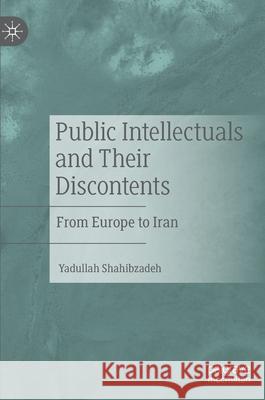Public Intellectuals and Their Discontents: From Europe to Iran » książka
topmenu
Public Intellectuals and Their Discontents: From Europe to Iran
ISBN-13: 9783030565879 / Angielski / Twarda / 2020 / 288 str.
Public Intellectuals and Their Discontents: From Europe to Iran
ISBN-13: 9783030565879 / Angielski / Twarda / 2020 / 288 str.
cena 402,53
(netto: 383,36 VAT: 5%)
Najniższa cena z 30 dni: 385,52
(netto: 383,36 VAT: 5%)
Najniższa cena z 30 dni: 385,52
Termin realizacji zamówienia:
ok. 22 dni roboczych.
ok. 22 dni roboczych.
Darmowa dostawa!
Kategorie BISAC:
Wydawca:
Palgrave MacMillan
Język:
Angielski
ISBN-13:
9783030565879
Rok wydania:
2020
Wydanie:
2021
Ilość stron:
288
Waga:
0.50 kg
Wymiary:
21.01 x 14.81 x 1.75
Oprawa:
Twarda
Wolumenów:
01
Dodatkowe informacje:
Wydanie ilustrowane











